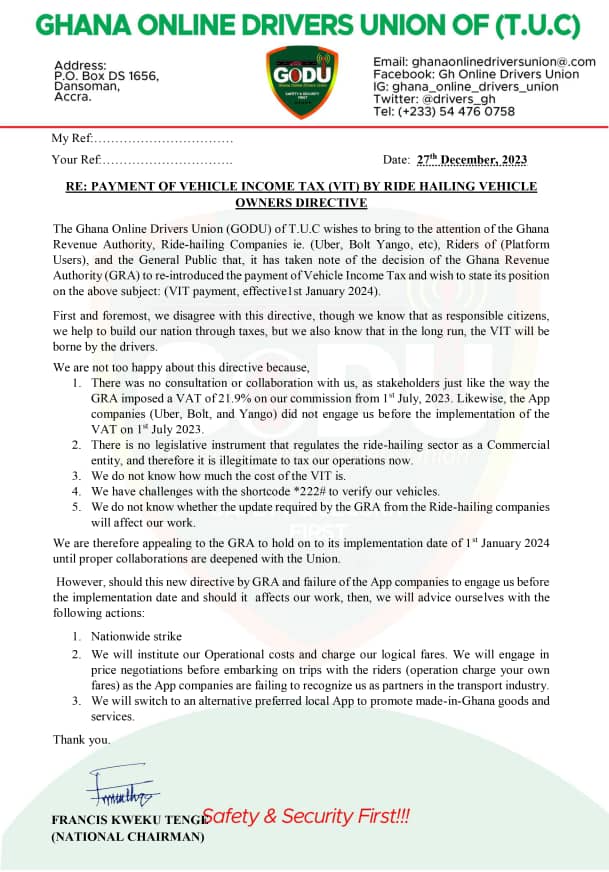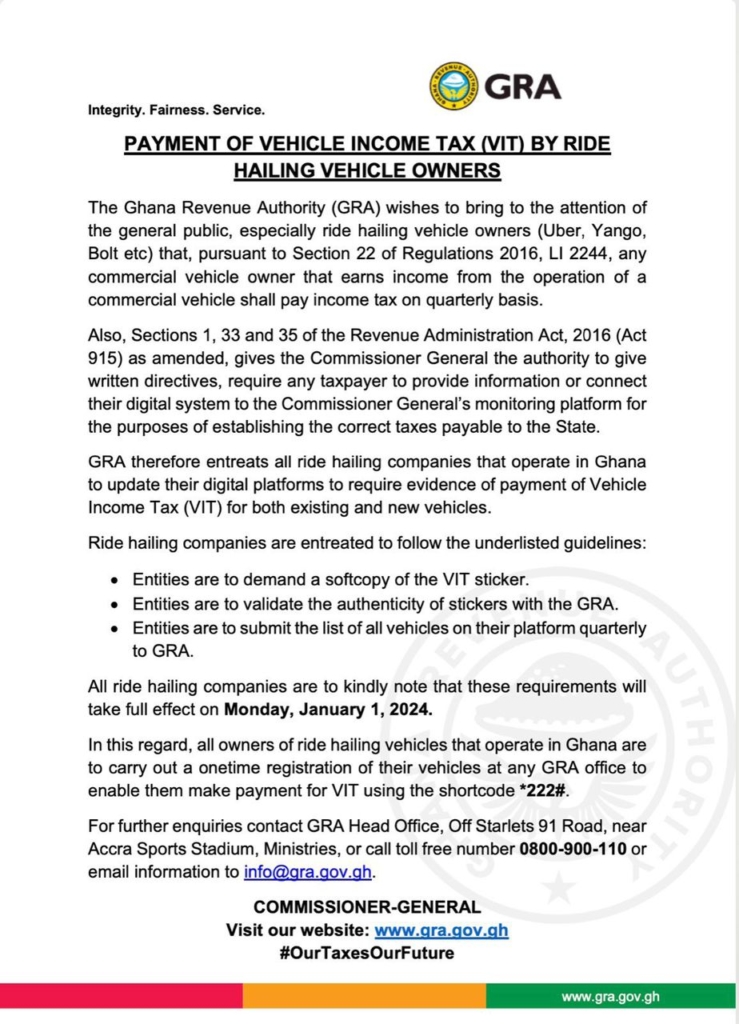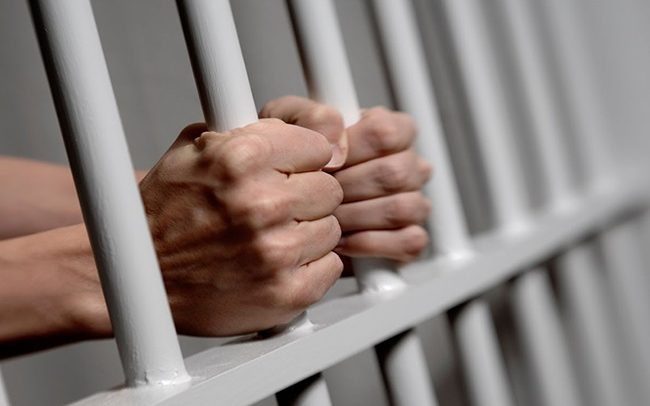
By Fiifi NETTEY
Whenever I board a taxi, Bolt, Shaxi, Yango or Uber, I often strike up conversations with the drivers. Depending on their mood, they either respond to my conversations or not; and I respect their silence. But others are warm and open; and before long, we find ourselves lost in endless conversations.
I am often struck by the daily struggles drivers face as they navigate Accra’s busy roads and contend with the constant challenges, pressure from passengers, pedestrians and the routes they use. At times, passengers even speak harshly about their behaviours and attitudes, adding to the weight of their burden. Some drivers also badly behave toward passengers and pedestrians as well.

One particular hailing driver stood out to me. By coincidence, he often accepted my ride requests around the same time each morning and over time, we naturally became friends. Then, for several weeks, I noticed he was not accepting my request. Concerned, I decided to call him to find out if everything was alright.
That was when I learnt he had been attacked by armed men who attempted to snatch his car. In the struggle, he sustained multiple injuries and was left deeply traumatised. I was told of how many of his colleagues had not been as fortunate—some had lost their vehicles, while others even lost their lives. His ordeal pushed me to speak with more drivers, and their testimonies were nothing short of chilling.
A driver recounted a terrifying encounter with what seemed like an ordinary passenger. He had picked up a well-dressed young woman who chose to sit directly behind him. Her behaviour unsettled him, and through his side mirror, he noticed she had pulled her hat low to hide her face. At her supposed destination, she claimed her boyfriend would pay the fare. As the young man approached the car, the driver noticed something suspicious bulging under his shirt. Alarm bells rang, and the driver quickly sped off with the woman still inside.
That was when she grabbed his neck and began choking him. Fighting for his life, he ignored her grip and accelerated until he reached a junction. The woman panicked, opened the door, and jumped out, leaving her bag behind. Inside, the driver later found a sharp knife—a grim reminder of what could have happened if he hadn’t trusted his instincts.
Mike, a driver, narrated how – though his car wasn’t stolen – armed men robbed him of his entire day’s earnings and even took the groceries he had bought for his family.
Kwesi, also a driver, shared a story that almost cost him both his car and his life. A passenger requested a trip to Tema and persuaded him to go offline so they could avoid the app’s charges. Kwesi reluctantly agreed. Along the way, the passenger asked him to take an unauthorised route and later insisted on picking up another person. The situation grew tense. Soon after, the passengers demanded he stop. When he pretended not to hear, one struck him on the head, forcing the car off the road. In the chaos, Kwesi managed to jump out and run for his life. The attackers chased him but failed to steal the vehicle—the keys were still in his pocket.
Nana, another driver, showed me a WhatsApp platform where drivers share their experiences. What I saw there was alarming. Many had been attacked—some slashed with machetes, others stabbed with knives, some cars destroyed in the process. Others have lost the cars. The reality was far more terrifying than anything I had heard. Seeing the images and testimonies on that platform brought the danger into sharp, chilling focus.
Apart from the physical attacks, I also observed that some passengers can be extremely rude and verbally abusive toward commercial drivers. I witnessed one incident where a driver was humiliated by a passenger simply because he did not call upon arrival. The driver had parked at the exact pickup point, but when the passenger came out, she became furious. She shouted: “Why didn’t you call me when you arrived? Do you want to wait for the fare to increase?” She then cancelled the trip on the spot. The frustrated driver later complained to me about the way some passengers treat drivers, explaining that this was already the third cancellation he had experienced that morning. “It’s unfair,” he added.
Peace shared his experience, explaining how some passengers—particularly women—can be very disrespectful and arrogant. He said some eat in the car and leave their trash behind, while others even go as far as placing their feet on the dashboard. He admitted, however, that not all drivers themselves behave appropriately either.
Some drivers complain that the main challenge often comes from the pick-up points. In some cases, there’s no proper road leading to the location, yet passengers insist that the driver should still get there instead of meeting at a more convenient spot. Drivers say passengers sometimes call and shout at them over the phone, and after the driver has struggled to reach the location, the passenger cancels the trip at the last minute.
“We go through a lot in the hands of passengers. But who are you to complain? It’s the job we do, and you just have to consider it as part of the hazards,” one driver explained.
On the other hand, a passenger shared her fears, saying she avoids using commercial rides at certain times because she has heard stories of drivers kidnapping passengers. “Some of my friends have had such experiences, so I don’t take chances,” she said.
Michael, another passenger, added that some drivers may try to overcharge unsuspecting riders. “You just have to be smart and keep your eyes open,” he advised.
Osbert recounted how rude and disrespectful some riders can be, recalling an incident where a simple communication error led to a rider insulting him—a moment he says he will never forget.
These are far from isolated incidents. Behind every ride request on Uber, Bolt or Yango lies the hidden risk of violence. For drivers, each trip is a gamble between earning a living and safeguarding their lives—and passengers face similar risks. To change this, we must learn to coexist with mutual respect. Life is short, and only by valuing one another can we make society a safer, better place.
The post The dark side of ride-hailing in Accra appeared first on The Business & Financial Times.
Read Full Story





















Facebook
Twitter
Pinterest
Instagram
Google+
YouTube
LinkedIn
RSS